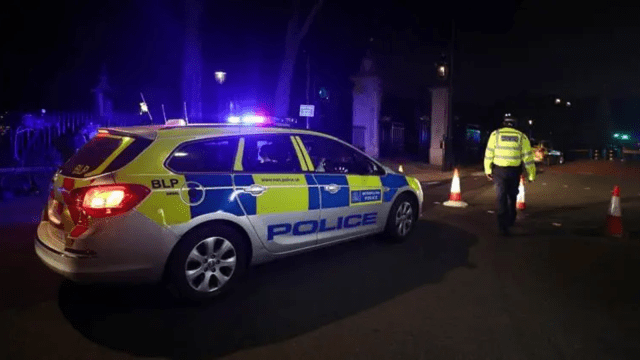 The three men were among 11 people arrested earlier this month in London and the northern Yorkshire area by counterterrorism police using provisions of a new law that allows suspects in national security and espionage cases to be detained without warrant. ( Reuters/File Photo)
The three men were among 11 people arrested earlier this month in London and the northern Yorkshire area by counterterrorism police using provisions of a new law that allows suspects in national security and espionage cases to be detained without warrant. ( Reuters/File Photo)Three men appeared in a London court Monday on charges that they helped the Hong Kong intelligence service gather information in Britain, amid growing concern that hostile states are trying to interfere with democracy and economic activity in the UK Chi Leung (Peter) Wai, 38, Matthew Trickett, 37, and Chung Biu Yuen, 63, were granted bail during a brief hearing at Westminster Magistrates’ Court.
The men, who sat side-by-side in the glass-fronted dock, spoke only to confirm their identities. Police allege that between December 20 and May 2, Yuen, Wai and Trickett agreed to engage in information gathering, surveillance and acts of deception that were likely to materially assist the Hong Kong intelligence service. The charges include allegations that the men broke into a residence on May 1.
The three men were among 11 people arrested earlier this month in London and the northern Yorkshire area by counterterrorism police using provisions of a new law that allows suspects in national security and espionage cases to be detained without warrant.
The eight other suspects were released without charge. “A number of arrests were made and searches carried out across England as part of this investigation,” Commander Dominic Murphy, head of the Met’s counterterrorism command, said in a statement. “While led from London, the Counter Terrorism Policing network has been crucial to disrupting this activity.”
The hearing came as Prime Minister Rishi Sunak delivered a speech in which he said Britain was facing an increasingly dangerous future due to threats from an “axis of authoritarian states,” including Russia, China, Iran and North Korea.

Tensions with China flared last year after a parliamentary researcher was arrested on suspicion of spying for Beijing, charges that Chinese officials called a “malicious smear.” Hong Kong’s security bureau, Hong Kong police and the office of China’s foreign ministry in Hong Kong didn’t immediately respond to requests for comment about the recent arrests.
The British government last year passed a new national security act that gave police additional powers to tackle foreign espionage.
The legislation was needed to combat the “ever-evolving” threat of foreign interference and in “response to the threat of hostile activity from states targeting the UK’s democracy, economy, and values,” the government said.
The arrests in the current case were made on May 1 and 2, and the investigation is continuing, police said. The next court appearance for the three suspects is scheduled for May 24 at the Central London Criminal Court.
 Earn Coin
Earn Coin Mining
Mining
 Play Games
Play Games




 Spin Wheel
Spin Wheel Miner
Miner Play & Win
Play & Win